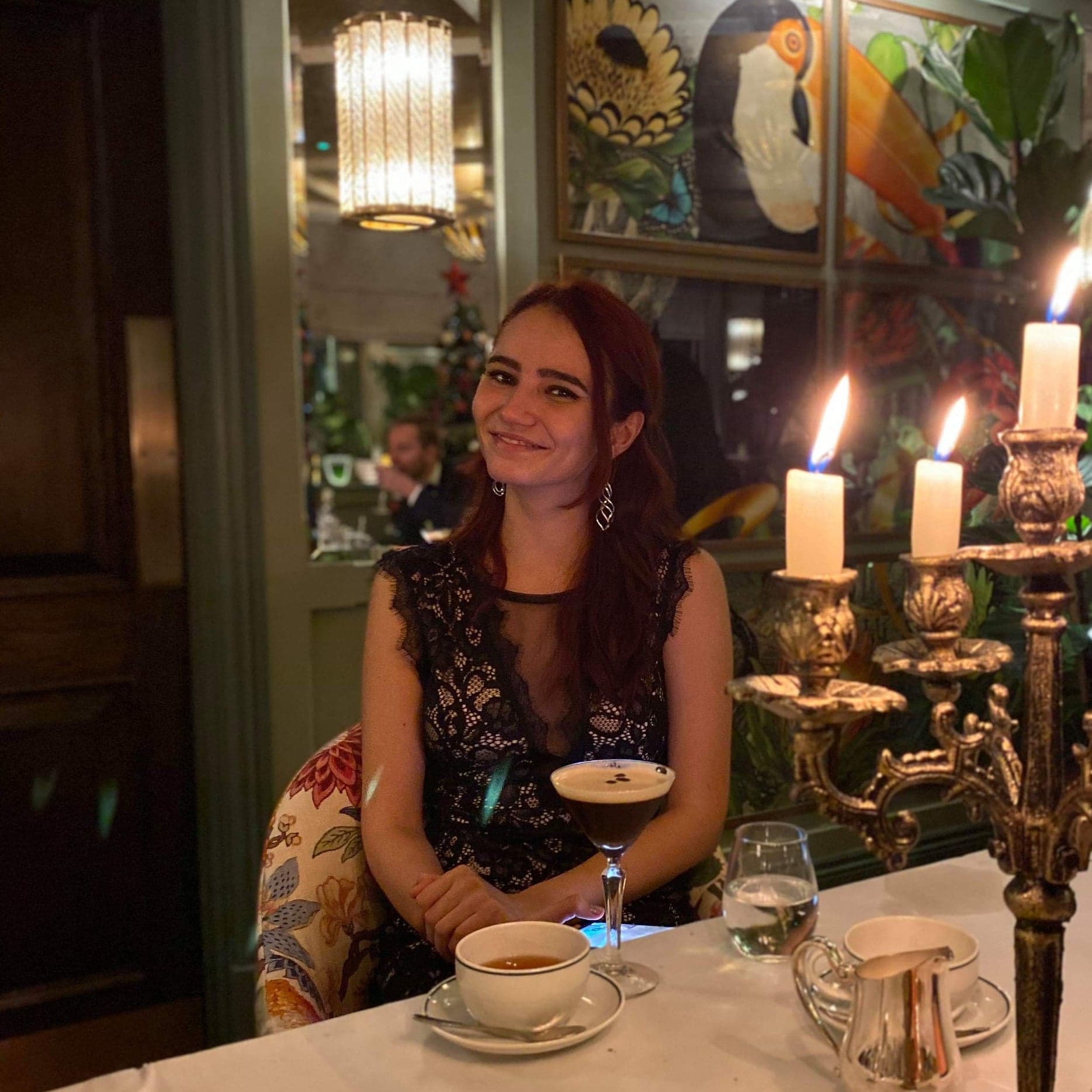Let’s get the most controversial thing about me out of the way first. I study Philosophy, Politics and Economics (PPE). Now is the time to look at the title of this publication and confirm that you’re indeed reading The Oxford Scientist. And yes, you are. So how does a PPE student fit into this picture? The reason why I managed to convince the editors that this fits in with their vision is that I firmly believe that what unites the field of social sciences with the natural sciences is a mutual commitment to a search for ideas by submitting them to the scientific method. By producing falsifiable predictions and holding as (temporarily) true only what we failed to disprove after doing everything in our power to try.
Why did you decide to study your subject at Oxford?
“…either impressed by my resolve or just exhausted from their own resistance, my parents reluctantly signed off on my all-or-nothing gamble. “
My passion for PPE started with the striking realization that I knew nothing about the world we live in. I was in a Romanian high school, studying a Natural Sciences specialization and decided to take up debating. At the first meeting, our trainer asked if we knew what ISIS1 was. Scanning the room for a show of hands and finding no volunteers, I shily raised mine: “ISIS is that Egyptian goddess, right?” The reaction burst my bubble. It burst the sensation that I was master of this little world I thought was everything: the world of chemical reactions, and bodily functions, and physical phenomena. I was wrong, and the thought of limiting my awareness to this zoomed-in slice of reality was claustrophobic to me. I needed to know how the world works, the entire world. And rightly or wrongly, I thought (and still do) that PPE could give me not the, but an answer. And as a high-achiever I was going to do anything to study PPE at the best possible place, the place where this degree originated from – the University of Oxford.
There was one last obstacle in my way once I had made the decision: the Romanian education system. I knew nothing about either philosophy, politics or economics. The communist-inherited orientation of Romania towards highly pragmatic, vocational, employable subjects means that Social Science and Humanities subjects are very much disregarded. This means highly able students often self-select into STEM subjects and there is a lack of high quality debate and competition necessary to build a strong candidate for higher education in these areas. I was just two years away from having to submit my application for one of the most competitive courses in the world. And there was nowhere to turn.
That’s when I decided that the only way was to go to Sixth Form in the UK. And a 16-year-old suddenly deciding to change her carefully built path towards medicine into this obscure degree which frighteningly started with the word “philosophy” was not something you’re prepared to hear as a (Romanian) parent. But I pleaded, I made PowerPoint pitches, I assembled a coalition of supportive family friends, I forced my father to drive to the other end of the country for a presentation on UK education in the capital city and somehow, either impressed by my resolve or just exhausted from their own resistance, my parents reluctantly signed off on my all-or-nothing gamble.
What was your experience of the application process?
My application journey was a battle with myself to renounce the perfectionist mindset that made me want to devote all my time and effort towards achieving A-level perfection. I had to learn to consciously fight this impulse and allow myself to drift off into areas I was simply curious about and explore them.
My advice to anyone thinking about applying to Oxford is to give yourself space to do this exploration and eventually you will “find your thread” within your subject- the aspect that inspires and drives you. The moment I “found my thread” within PPE was when I read a rather obscure-looking book called “The Anarchist Reader”. It awakened in me a rejection of shorthand labels of political ideologies and started me on a quest to only make judgements on ideas when understood from their very source: the political philosophers who wrote about them.
What I found to be most important in my preparation was learning to think out loud and trace the steps of my mental process, which I think served me very well in interviews. I was always trying to find new ways to challenge myself in preparation for interviews and I recently came across these voice recordings I would make, looking up strange interview questions and recording my answers so that I could hold myself accountable.
How were the first weeks of your ‘Oxford experience’ like?
When I came to Oxford I expected to be taught, for things to be explained to me, as well as for lectures to play a more central role in my education. I quickly found out that my degree was all about figuring things out on my own, spending long hours doing reading in the library or cafés and making an informed judgement on whether my time is better spent in lectures or doing more individual reading, depending on the specific subject. I quickly learnt that I was the one in charge of my educational experience and I could only get out as much as I put in. This particularly applies to tutorials, especially in philosophy and politics where these revolve around your essays, and where the extent to which you engage with the readings and the quality of your essay can determine how insightful your tutorial discussions can get.
What is your experience of the Oxford tutorial system?
Tutorials in philosophy and politics tend to revolve around essays, and they mainly involve debates between me and my tutorial partner, in which the tutor would occasionally jump in to guide the conversation. The tone is very much set by us students, whether we engage in quite heated debates or whether we honestly disclose arguments we are unsure about and engage each other in finding answers together. Economics tutorials also have this element around the essay-based questions, but they more often involve taking turns solving problems on the whiteboard alongside shorter discussions around the economic interpretation of equations and results.
“What I also hadn’t realized before but now firmly believe is that Oxford is first and foremost about the people.”
What I also hadn’t realized before but now firmly believe is that Oxford is first and foremost about the people. And when I say people I mean first of all the other students you will meet. I have learnt at least as much from my friends over drinks at one of our favorite pubs or late-night chats over a glass of wine, as I have from my reading and my tutors. My friend groups have changed and I have met my friends in unexpected ways: from venturing together at events for international students, from taking on the challenge of experiencing Formal Hall2 at every Oxford college, from meeting at parties organized by a mutual friend, from living on the same floor. You just never know.
When I say “people”, I also mean your tutors. Your tutors are friends with the authors on your reading lists. They often are the people on your reading lists. One of my best tutorial experiences was when I raised an objection to something an Oxford academic on my reading list said and my tutor replied by saying he had once asked him that as well while they were at the pub and told me what he’d said!
And finally, when I say people, I also mean the high-profile politicians and celebrities who come to give talks at the university that you might meet by getting involved in student societies. One of the highlights of my own experiences is that I once met Yannis Varoufakis (Greek Finance Minister during the sovereign debt crisis) and tripped in front of him while I was taking him to the event room for a talk at the Oxford International Relations Society.
What does a typical day during term look like?
One of the things I most love about my life in Oxford is that there is no “typical day”, as well as the fact that every term is a new beginning, when you can do things differently and join new societies.
I would often start my days by having breakfast in Hall3 with friends, meeting someone at a café or having some quick cereal in my room if the day was particularly busy. I would often have one or two hours of lectures but spend most of the day doing reading in a library or study sessions with my friends in one of the many student-friendly cafes in Oxford. My afternoons and evenings would always be different: I would often go to a talk or networking event around 5 pm as I was on committees for a lot of student societies and these would sometimes conclude with a dinner with the speakers over Formal Hall in one of the colleges. I would also usually find time to go out clubbing, for a college party or for a society social event at least once a week in the evenings.

What is College Life for you?
It is very much up to you how much of your life as an Oxford student revolves around your college and how much around the wider university. Life at Magdalen is very vibrant with fortnightly parties (“Bops”) that have a reputation of their own, Magdalen-only student societies, welfare events and college sports.
A particular feature of being a PPE student at Magdalen is the Stokesley Society- a weekly discussion group over (free!) lunch where we debate topical political issues in a very friendly and informal setting. PPE students also tend to be attracted to getting involved in college politics, which can be a great source of responsibility given how large and active Magdalen is as a college. This of course comes with its own challenges: it is rare to be able to befriend the entire Magdalen community and making friends might initially seem more daunting than at a smaller college. However, it also means that you get a great balance between building the comfort of a tight friendship group and never feeling claustrophobic about your social prospects.
My personal experience was that I initially befriended the people living on my floor in college accommodation and our friendship group very much expanded over time. By the end of my second year, my friendship groups changed quite a lot and I have continued to meet like-minded people who have become very close friends, both in college and outside of it. This is quite a common experience: friendship groups tend to be quite fluid so you shouldn’t feel at all like everything is up for grabs during the first few weeks of your first year.
How is life outside university & college?
Already from my first year at Oxford, I have felt the need to extend my horizons beyond college by being on the committee of several student societies and making friends this way too. This was one of the big highlights of my Oxford experience because I got to meet a lot of people, have engaging conversations with prominent speakers over dinner at Formal Hall, got to attend society socials and committee dinners for free and have very much felt like I could see “behind the curtains” and even be in charge of organizing a lot of events that happen at Oxford. Still, I have always felt like college was ultimately my home and my friends there – the family I turn to at the end of an exhilarating yet exhausting working day.
What skills will you gain from your course?
The one thing I will certainly take away from my Oxford education is the ability to build a sophisticated understanding of complex concepts in a very short timeframe that I can then confidently manipulate to make a persuasive argument of my own. Some people call this “bullshitting your way through”. But I have come to the realization that the best arguments are made when you know enough to be able to say something competent, but not enough to see all the reasons why you may be wrong, which may discourage you from ever speaking up. This latter role is the role of your critics, who will always exist, so at some point you need to draw the line on your levels of self-criticism, expose yourself intellectually and maneuver your way through the counter-arguments that come.
“I have come to the realization that the best arguments are made when you know enough to be able to say something competent, but not enough to see all the reasons why you may be wrong, which may discourage you from ever speaking up.”
Anything else you would like to add about your student life at Oxford?
Each of my terms at Oxford has looked very different and looking back at them they have taught me very different aspects of who I am and what my values and priorities are. For each of them I have a picture that just got imprinted in my memory: my first term is me running across Oxford in heels and a formal dress eating a hurried sandwich on my way to some networking event; my second term is me carrying a massive stack of books out of the Social Science Library every week as my course suddenly upgraded from a manageable selection of articles to a pile of books; my third term is a mix of flashbacks to long hours spent revising in the Magdalen library for my first year exams and walks, picnics and punting in the sunshine; my fourth term was a term of change: new friends, new accommodation and the novelty of only studying the modules I picked myself at the start of my second year; my fifth term was about my relationship and gaining a better work-life balance; and my sixth term that just passed is, as for many others I’m sure, me making sure I look presentable and fiddling with the settings in the Microsoft Teams waiting room, something I hope none of you will have to experience…
Just as a final word, I think the most important advice I have ever given prospective applicants that I’ve coached at my old Sixth Form as well as back home in Romania is this: tutors are looking for people for whom they are willing to part with their world-class research for an hour of teaching every week. What matters most is how your mind works and how you respond, how you challenge ideas and how you move past dead-ends in your thinking. That’s what interviews reveal and that is both what will get you in and what will help you thrive if you do get your place at Oxford.
Glossary:
- ISIS is an abbreviation for “Islamic State of Iraq and Syria”, officially known as the “Islamic State”:
https://www.bbc.co.uk/news/world-middle-east-29052144 - “Formal Hall” is a formal dinner arranged by a college.
- “Hall” refers to the central dining hall in a college.
This article is part of our series of ‘Student profiles’ where we explore the student life at Oxford. Did you ever wonder how students come to study at Oxford and how the application process feels like? What about all the quirky Oxford traditions, the college system and tutorials? And how does all this ‘Oxford experience’ differ between natural and social science courses? In this series we ask students to tell us about their experience.





